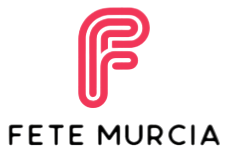Breathe Easy Natural Remedies for Permanent Relief from Lumps in the Throat
A feeling of a lump in the throat, medically known as globus sensation, can be distressing and uncomfortable. It often feels like something is stuck in the throat, making swallowing difficult, even though no physical obstruction is present. This sensation can be triggered by various factors, including stress, acid reflux, allergies, or even chronic throat irritation. While visiting a healthcare professional is crucial for diagnosis and treatment, several natural remedies can help alleviate symptoms and provide permanent relief over time.

- Herbal Teas: Herbal teas, particularly those containing ingredients like ginger, licorice root, and chamomile, can provide soothing relief to the throat. Ginger is known for its anti-inflammatory properties, helping to reduce irritation and swelling. Chamomile promotes relaxation and has mild anti-inflammatory effects, while licorice root can soothe the throat and ease discomfort. Drinking a warm cup of these teas a few times a day can reduce the feeling of a lump in the throat, especially if stress or irritation is the underlying cause.
- Apple Cider Vinegar: Apple cider vinegar ACV is a popular remedy for acid reflux, which is often associated with throat lumps. ACV helps balance stomach acid and can prevent acid from backing up into the esophagus, leading to less irritation in the throat. Mix one tablespoon of ACV in a glass of water and drink it before meals to support digestion and reduce symptoms of reflux.
- Honey and Warm Water: Honey is a natural anti-inflammatory and antimicrobial agent that helps soothe irritated tissues in the throat. A tablespoon of honey mixed with warm water can provide immediate relief, reducing the sensation of a lump. Honey also promotes healing in the throat and has a calming effect on inflammation. Consuming this mixture daily can contribute to long-term relief.
- Steam Inhalation: Dry air and environmental pollutants can aggravate the throat and lead to a feeling of a lump. Steam inhalation helps moisten the airways, reduce inflammation, and promote easier breathing. Simply fill a bowl with hot water, cover your head with a towel, and breathe in the steam for about 10 minutes. This can loosen any mucus and provide relief from throat discomfort.
- Mindfulness and Stress Reduction: Anxiety and stress can play a significant role in causing or exacerbating globus sensation. Practicing mindfulness, meditation, or yoga can help manage stress levels and reduce the physical tension in the throat. Deep breathing exercises also promote relaxation and help calm the nerves, Knedla u grlu prirodni lijek leading to reduced throat discomfort. Incorporating these natural remedies into a daily routine can help reduce the sensation of a lump in the throat, especially when combined with a healthy lifestyle and hydration. However, persistent symptoms should be evaluated by a healthcare provider to rule out underlying conditions and receive appropriate treatment.
